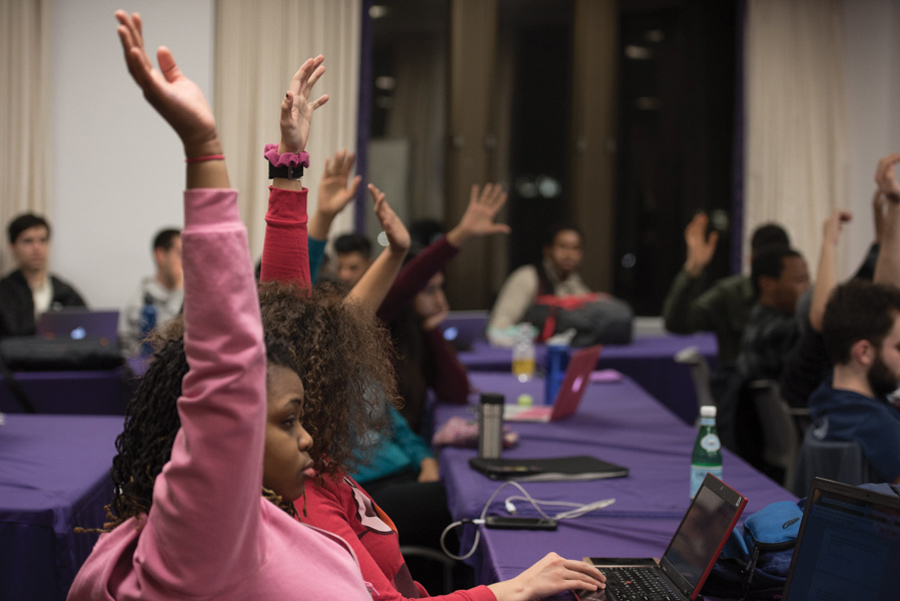Explainer: How an ASG proposal becomes an amendment
Daily file photo by Allie Goulding
Senators must pass the bill through a series of procedures to make it an amendment.
February 27, 2020
In the last month, Associated Student Government Senate worked on passing a new constitutional amendment, advancing from proposal to debates to the final vote.
The amendment, which was adopted by a vote of 36-1 with two abstentions at Senate’s Feb. 19 session, would reduce the number of Senate seats from 51 to 41 in an effort to battle chronic absenteeism as well as make seats more desirable and representative.
“Change is a slow long process and we took a step in the right direction,” said Matthew Wylie, speaker of the Senate and a Weinberg sophomore, who introduced the amendment.
Senators must pass the bill through a series of procedures to make it an amendment.
The process starts with the “special enacting legislation,” a type of bill submitted by senators that compels action from ASG and its affiliated officers and student groups, according to the ASG code. Alternatively, 100 students can submit a petition that proposes an amendment.
The authors of the amendment are responsible for hosting at least one public forum after introducing it as “new business” and one week before the final vote. If needed, the Senate can vote to waive this obligation if three-fourths of present senators agree.
Additionally, the code states there must be a gap of at least two weeks between proposal and ratification. After the time period, the Senate would then be allowed to pass the bill if at least two-thirds of present senators vote in favor.
Some amendment processes take longer than three weeks. The amendment to reduce Senate seats, for example, took around a month, and its Feb. 12 session adjourned without a vote because Senate did not have a quorum.
A prolonged discussion delaying a vote is natural depending on the topic of an amendment, Henry Molnar, ASG chief of staff and a Weinberg senior, said.
Through his four years of involvement at ASG, Molnar has experience in drafting, developing and presenting a successful amendment. In 2018, he proposed an amendment to replace residential caucuses with school-based seats, which passed unanimously.
“It’s adequate in the sense that it takes more to change the constitution,” he said. “The only issue that I really have with it is (students not attending forums) … no one cares about the internal politics or the internal affairs of ASG and that’s basically all the constitutional amendments are designed to do like they’re not really anything that affects anybody but people in ASG directly.”
Molnar added that he wished there were larger incentives for students to attend forums because matters like the number of Senate seats do impact student advocacy through student government overall.
Despite the multi-step process, the number of proposed constitutional amendments have increased as of recent years, Molnar said. In the last three years, there has been an amendment each year, but before that, there wasn’t one for five years.
“The Senate may waive this requirement by a vote of three-fourths of certified Senators but a period of two weeks must lapse between an amendment’s proposal and ratification,” the code writes.
Email: [email protected]
Twitter: @yunkyomoonk












